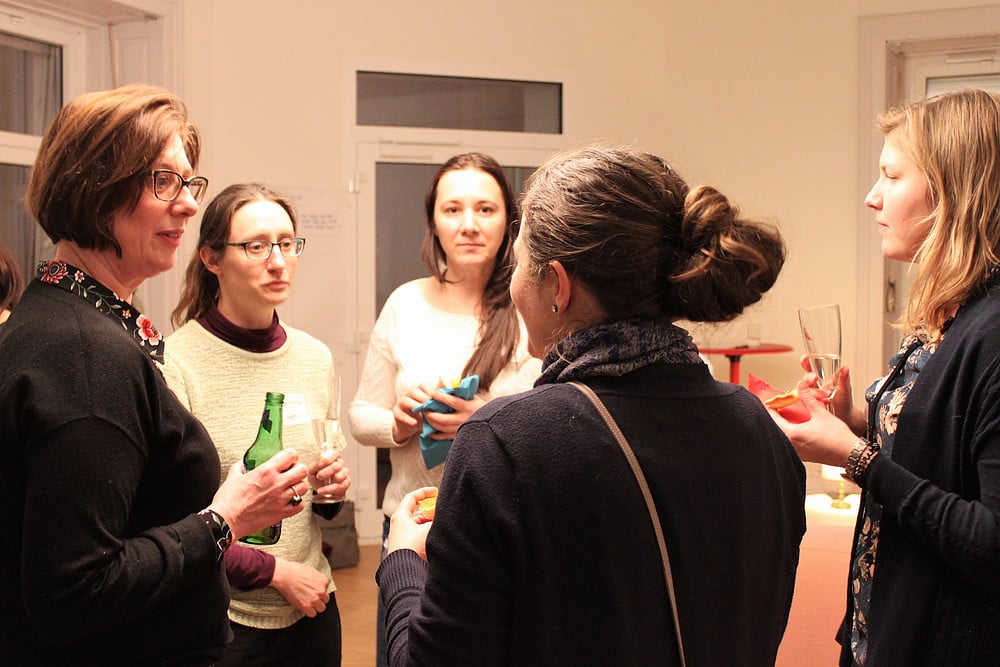Women in Tech & Digital talk about different experiences in their first job interview of the hiring process than their male counterparts. Here is what happens.
witty works regularly invites Women in Tech & Digital to focus group sessions in order to get insights into their professional experiences. Thus making sure that we consult our clients based on empirical findings. On 7 February the focus group participants told us about their experiences in the first steps of the hiring process. One of the findings struck me because it reminded me of the super interesting Ted Talk of Dana Kanze: "The real reason female entrepreneurs get less funding".
Dana Kanze tells us of her experience and research with regards to questions from VCs, be it female or male ones: "I [as a startup founder] got asked just about everything that could go wrong [...], while my male cofounder was asked about our venture's home run potential to maximize investor gains, essentially everything that could go right [...]."
The consequence? Women get much less funding because they are seen as less competent. Just because VCs ask them the wrong questions.
Confronted with suspicion
Dana Kanze's experience is similar to what our focus group recounts about their job interviews in the first round.
Women in Tech & Digital get confronted first and foremost with questions that have a suspicious nature. (By the way: Independent of the interviewer's gender.) Questions such as: "If you come to work with us, do you think you can sustain the pressure?"; "Being new in this role, will you be strong enough to hold on to and fight for your opinion?"; "It is a fast moving environment. Will you be able to take risks?", "Having the experience that you say you have, do you think you can be successful in our company?" etc.
So, they get asked questions at the start where they have to defend the fact that they are even sitting in the interview. Questions are posed in a way as if the recruiters already felt that the women couldn't fulfill the requirements. By answering these questions women get locked in defense mode. Once that mode has kicked in, it is hard for them to change that tone during the interview.
The interview turns into a negative experience on both sides: The interviewer sees a female candidate that is on the defensive and tends to not invite her for the second round. The candidate herself might feel that she is not good enough for that position. Or she withdraws her candidacy because she felt highly uncomfortable.
Appreciating skills & experience
Naturally we asked the women about good experiences they had.
Apparently, women felt ensured and competent in the interview if the focus in the beginning of the interview is not about questioning requirements, but about an honest exchange to see if there is a fit.
They first like to hear from the interviewer why they got invited, e.g. understanding which skills or experiences in their CV were particularly appreciated. Doing so helps to create a rapport at eye level. As well as the assurance that the interviewer has actually studied the candidate's profile.
In a second step they need to hear more about the role to be filled, the objectives to be attained in this role, its challenges as well as the company's purpose, culture and structure.
Why? Because that way they get a true understanding of the environment and their future tasks ahead. At best this is not a frontal presentation but much more of an exchange between interviewer and interviewee where any questions are allowed. In this situation, women are happy to argue about their personal view of the job's requirements, how they see fit with the requirements and about their aspirations in the company.
Embedded in this exchange, the recruiter does also ask tricky questions. But they are given in an understandable context. The female candidate feels competent in answering, since the tone has been set differently, a trustful rapport has been established and she has the full information about the role.
The interview is a positive experience on both sides: The interviewer sees a female candidate that is self-assured, shows her competence and frankly talks about her aspirations. The candidate feels taken seriously and sees that her skills and experiences are understood and appreciated.
A company's choice determines the outcome
What does this mean for a company interviewing Women in Tech & Digital? Just as those questions from VCs Dana Kanze was mentioning: An interviewer's choice of questions and procedure will determine the outcome.
If a company wishes to recruit more Women in Tech & Digital, it will have to take a close look at the questions it is asking and how it structures the whole exchange.
If you are looking for a digital writing assistant for inclusive language, try out Witty for free. Witty detects non-inclusive language and provides ongoing training on unconscious bias and operationalizes inclusion.





